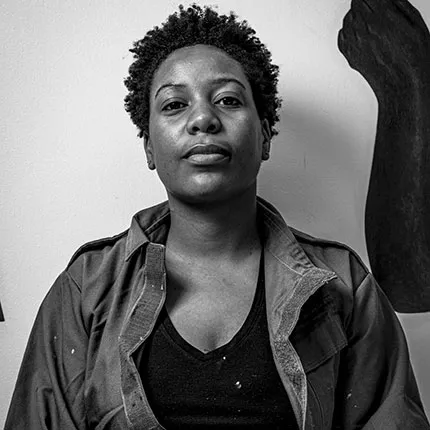
Sungi Mlengeya was born in 1991 in Dar es Salaam, Tanzania. She is a self-taught artist who works primarily in the acrylic medium on canvas creating paintings that are free, minimalist and with a curious use of negative space. Most of the works consist of dark figures in minimal shades of black and browns against perfectly white backgrounds, a commemoration of women who surround her. In 2020, Sungi was honored in Apollo 40 Under 40 Africa, a selection the most inspirational young people in the African art world. The artist’s recent inaugural solo exhibition (Un)Choreographed that took off in June 2022 marked the reopening of the home of London’s Africa Centre in Southwark. In 2021, the artist presented a solo booth at Art Basel Miami Beach titled Unsettled Minds following her debut solo exhibition Just Disruptions at Afriart Gallery
Who has shaped the way you show up today as an artist and/or activist?
Sungi: Many people came into play for the person I am today; including great teachers and mentors, parents who supported my craft, some inspirational women in my life, and very many imagined personas. I read a lot of stories growing up, I disappeared into the different words of the characters and could become anyone anywhere. These stories ingrained in me the many possibilities that can exist, as long as I wanted them to. The countless authors of these stories grounded in me imagination and confidence to do what I wanted.
What is the power of connecting artists working at the intersection of arts and social movements across different geographies?
Meeting artists from various parts of the world creating powerful interventions gives me comfort and motivation. There is so much to learn and borrow from one another, support to give and receive, and a comforting realization that you are not alone.
How do you see art with relation to social change and movements, toward gender justice and decolonization?
Art enables us to reimagine and represent the world in ways that we want, and these new presentations can have the potential to impact lives. When artists give us creations of justice and freedom, then there is possibility for such change.
